Abstract
Murine embryonal carcinoma cells, the pluripotent stem cells of teratocarcinoma were injected simultaneously into caudal and cranial sites on the back of syngeneic recipients in order to determine whether regional anatomical differences affect their take and growth rate and differentiation. The overall tumour take rate was higher in caudal than cranial sites, but the initial weight of tumours was higher in the cranial than caudal sites. Tumours developing in the two anatomical sites grew at the same rate with a linear increase in volume. At the end of the 4-week experimental period the differences in the size of anterior and posterior tumours were negligible and no histological differences were noted between the two groups. Our data indicate that regional factors significantly affect the take rate and the initial growth of this murine teratocarcinoma, i.e. the establishment of solid tumours from injected stem cells. The growth rate of established tumours was not affected by regional factors.
Full text
PDF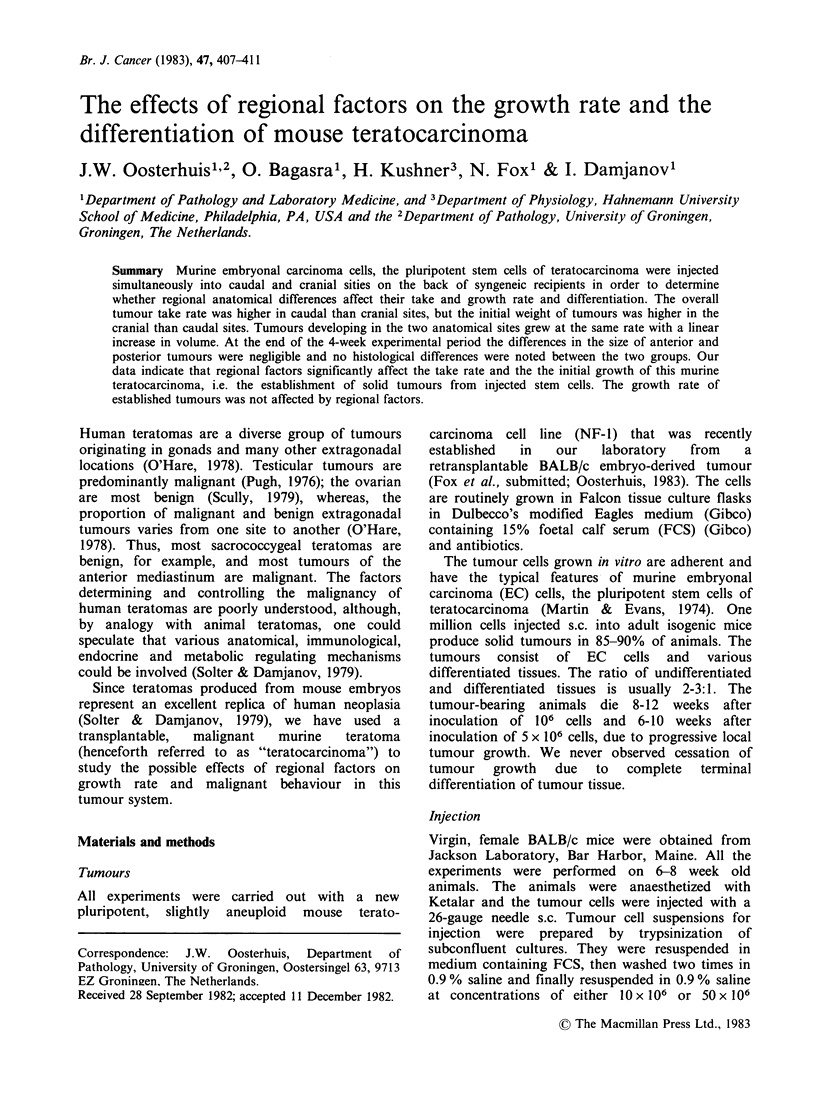
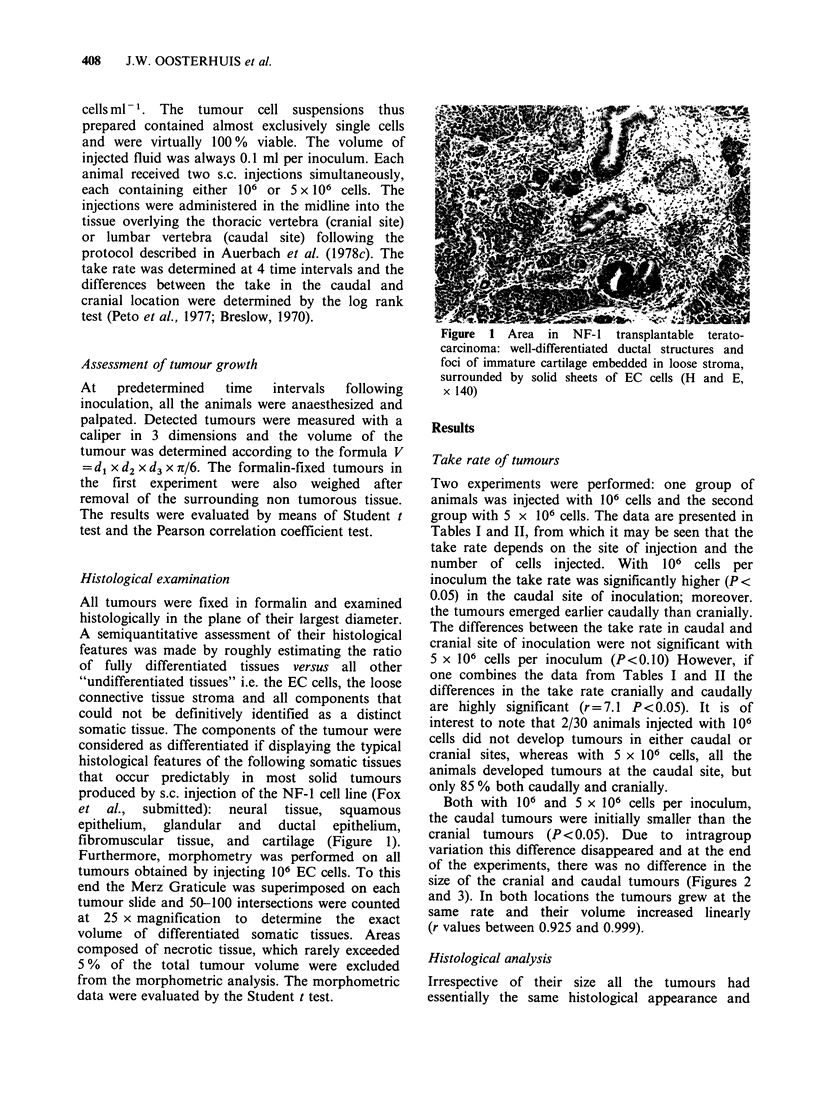
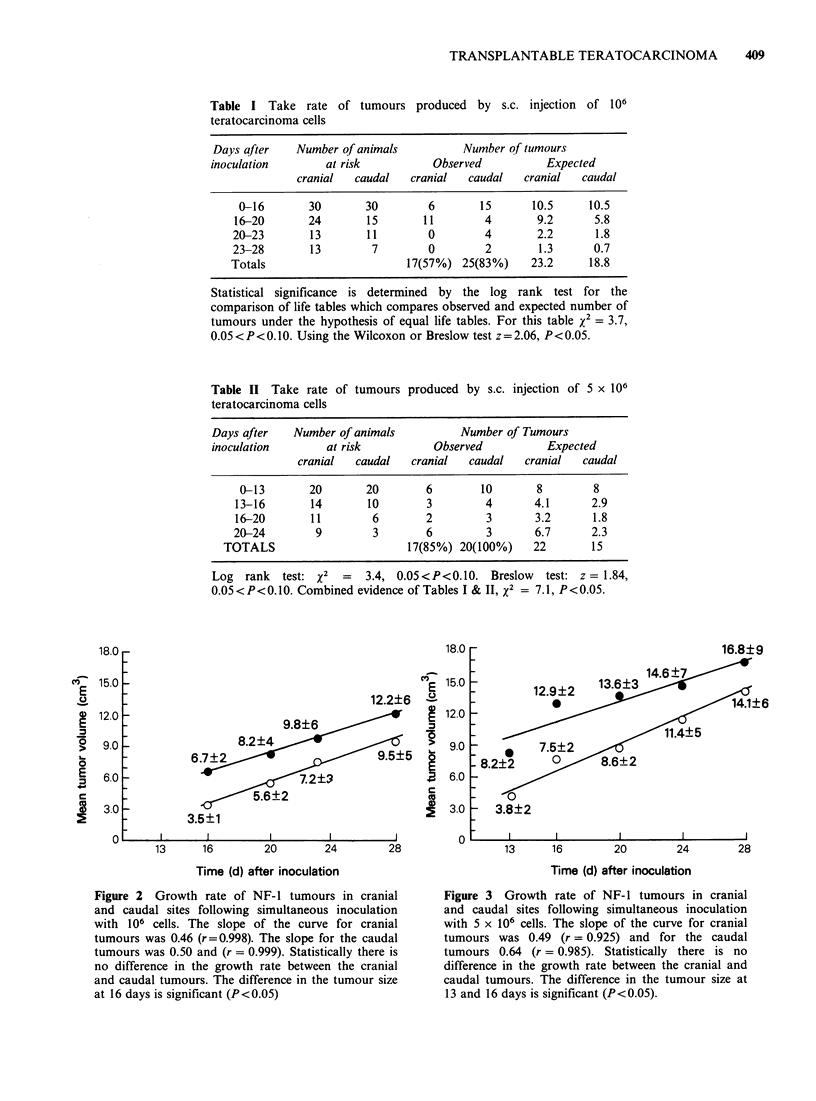
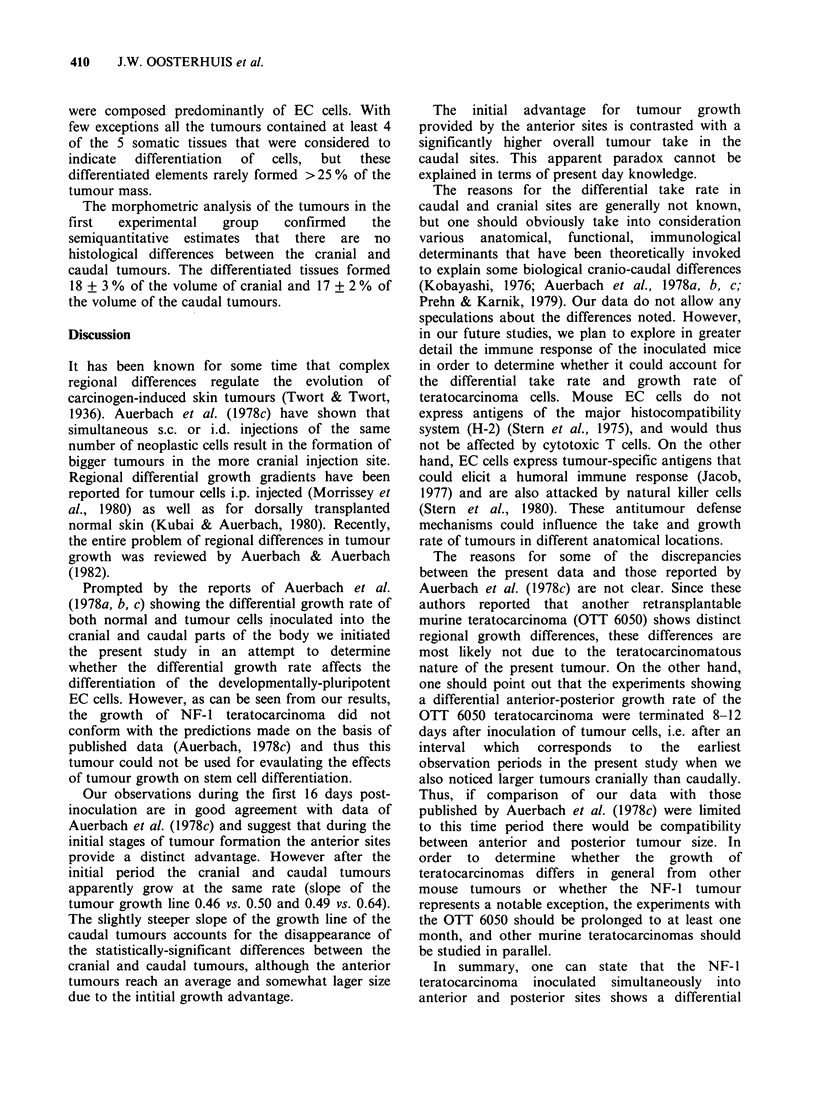
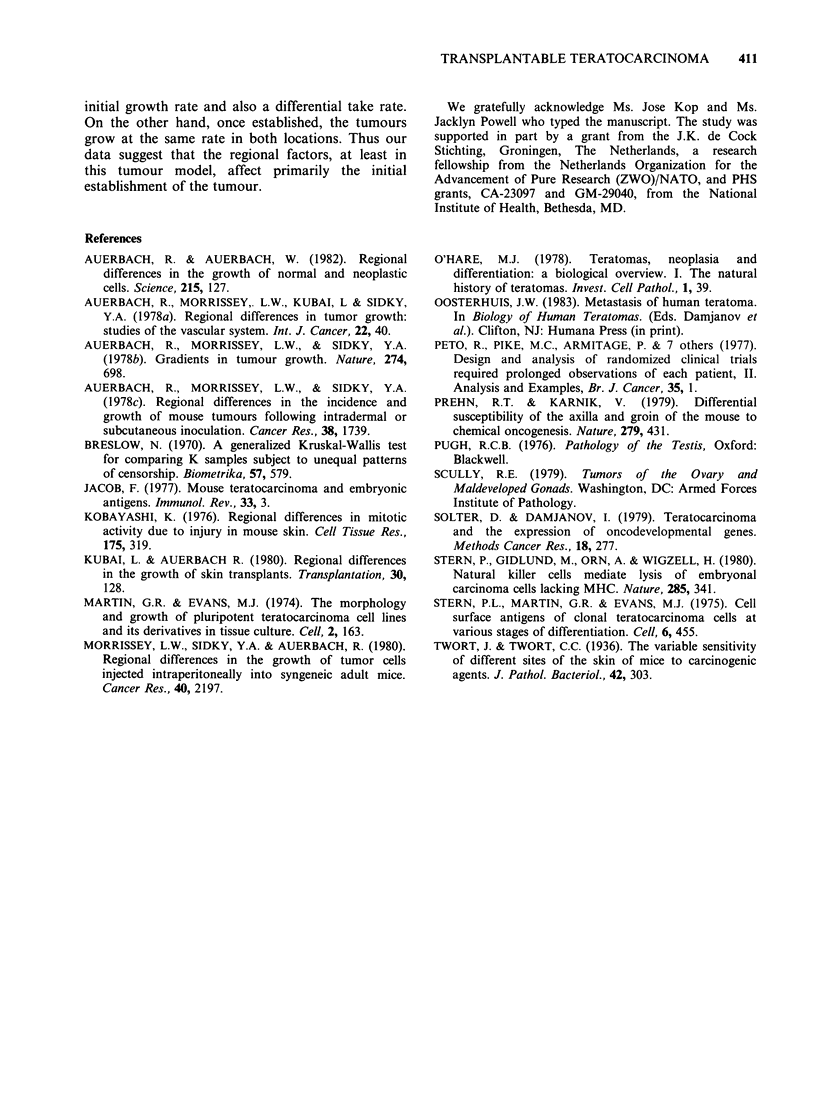
Images in this article
Selected References
These references are in PubMed. This may not be the complete list of references from this article.
- Auerbach R., Auerbach W. Regional differences in the growth of normal and neoplastic cells. Science. 1982 Jan 8;215(4529):127–134. doi: 10.1126/science.7053564. [DOI] [PubMed] [Google Scholar]
- Auerbach R., Morrissey L. W., Kubai L., Sidky Y. A. Regional differences in tumor growth: studies of the vascular system. Int J Cancer. 1978 Jul 15;22(1):40–46. doi: 10.1002/ijc.2910220110. [DOI] [PubMed] [Google Scholar]
- Auerbach R., Morrissey L. W., Sidky Y. A. Regional differences in the incidence and growth of mouse tumors following intradermal or subcutaneous inoculation. Cancer Res. 1978 Jun;38(6):1739–1744. [PubMed] [Google Scholar]
- Jacob F. Mouse teratocarcinoma and embryonic antigens. Immunol Rev. 1977 Jan;33:3–32. doi: 10.1111/j.1600-065x.1977.tb00360.x. [DOI] [PubMed] [Google Scholar]
- Kobayashi K. Regional differences in mitotic activity due to injury in mouse skin. Cell Tissue Res. 1976 Dec 10;175(3):319–324. doi: 10.1007/BF00218710. [DOI] [PubMed] [Google Scholar]
- Kubai L., Auerbach R. Regional differences in the growth of skin transplants. Transplantation. 1980 Aug;30(2):128–131. doi: 10.1097/00007890-198008000-00010. [DOI] [PubMed] [Google Scholar]
- Martin G. R., Evans M. J. The morphology and growth of a pluripotent teratocarcinoma cell line and its derivatives in tissue culture. Cell. 1974 Jul;2(3):163–172. doi: 10.1016/0092-8674(74)90090-7. [DOI] [PubMed] [Google Scholar]
- Morrissey L. W., Sidky Y. A., Auerbach R. Regional differences in the growth of tumor cells injected intraperitoneally into syngeneic adult mice. Cancer Res. 1980 Jul;40(7):2197–2201. [PubMed] [Google Scholar]
- O'Hare M. J. Teratomas, neoplasia and differentiation: a biological overview. I. The natural history of teratomas. Invest Cell Pathol. 1978 Jan-Mar;1(1):39–63. [PubMed] [Google Scholar]
- Prehn R. T., Karnik V. Differential susceptibility of the axilla and groin of the mouse to chemical oncogenesis. Nature. 1979 May 31;279(5712):431–433. doi: 10.1038/279431a0. [DOI] [PubMed] [Google Scholar]
- Stern P., Gidlund M., Orn A., Wigzell H. Natural killer cells mediate lysis of embryonal carcinoma cells lacking MHC. Nature. 1980 May 29;285(5763):341–342. doi: 10.1038/285341a0. [DOI] [PubMed] [Google Scholar]



